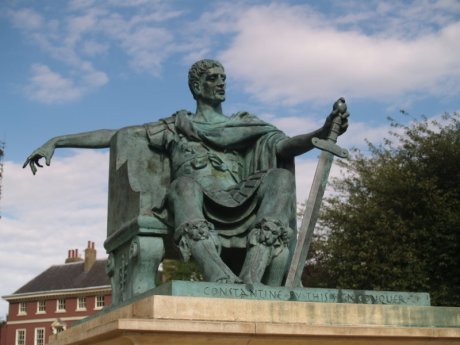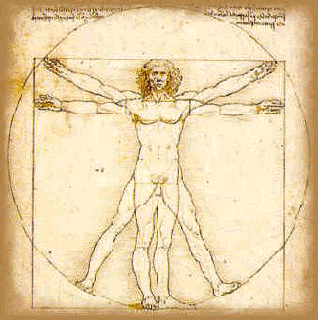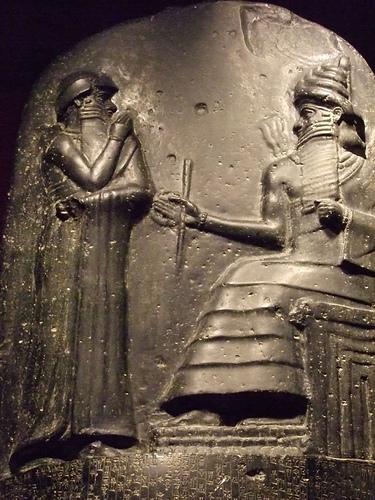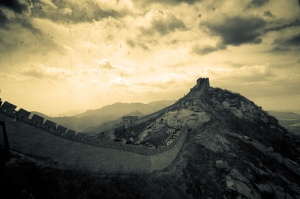Ancient Rome
October 9, 2008

Constantine the Great
October 9, 2008
In this Movie you will Learn about Constanie the Great. Enjoy!
Uploaded on authorSTREAM by debbie4ever101(CLICK oN LINK)

CONSTANTINE THE GREAT AND HIS SONS. 1. Constantine, Roman Emperor from 306 to 337; was born in 274, at Naissus in Upper Moesia, a son of Constantius Chlorus and Helena, and was, after the death of his father at York (July 25, 306), proclaimed emperor by the legions of Gaul. He immediately took possession of Britain, Gaul, and Spain; and after a series of brilliant victories over Maxentius, ending with the bloody battle at the Milvian Bridge, just under the walls of Rome, he also became master of Italy (312). He now ruled over the ‘Western Empire, as Licinius over the Eastern: but war broke out between them in 314; and in 323, after the battle of Chalcedon, in which Licinius was killed, Constantine became sole lord of the whole Roman world. He died in 337, at Nicomedia.
Tradition tells us that he was converted to Christianity suddenly, and by a miracle. One evening during the contest with Maxentius, he saw a radiant cross appearing in the heavens, with the inscription, “By this thou shalt conquer.” The tradition is first mentioned by Eusebius, in his De Vita Constantini, written after the emperor’s death. This miracle has been defended. with ingenious sophistry by Roman-Catholic historians and by Card. Dr. Newman (Two Essays on Biblical and on Ecclesiastical Miracles, 3d ed., Lond., 1873, pp. 271 sqq.), but cannot stand the test of critical examination. Constantine may have seen some phenomenon in the skies; he was no doubt convinced of the superior claims of Christianity as the rising religion; but his conversion was a change of policy, rather than of moral character. Long after that event he killed, his son, his second wife, several others of his relatives, and some of his most intimate friends, in passionate resentment of some fancied infringement of his rights. In his relation to Christianity he was cool, calculating, always bent upon the practically useful, always regarding the practically possible. He retained the office and title of Pontifex Maximus to the last, and did not receive Christian baptism until he felt death close upon him. He kept Pagans in the highest positions in his immediate surroundings, and forbade every thing which might look like an encroachment of Christianity upon Paganism. Such a faith in such a character is not the result of a sudden conversion by a miracle: if it were, the effect would be more miraculous than the cause. Judging from the character both of his father and mother, it is probable that he grew up in quiet but steady contact with Christianity. Christianity had, indeed, become something in the air which no one occupying a prominent position in the Roman world could remain entirely foreign to. But the singular mixture of political carefulness and personal indifference with which he treated. it presupposes a relation of observation rather than impression. He knew Christianity well, but only as a power in the Roman Empire; and he protected it as a wise and far-seeing statesman. As a power not of this world, he hardly ever came to understand it.

His first edict concerning the Christians (Rome 312) is lost. By the second (Milan, 313) he granted them, not only free religious worship and the recognition of the State, but also reparation of previously incurred losses. Banished men who worked on the galleys or in the mines were recalled, confiscated estates were restored, etc. A series of edicts of 315, 316, 319, 321, and 323, completed. the revolution. Christians were admitted to the offices of the State, both military and civil; the Christian clergy was exempted from all municipal burdens, as were the Pagan priests; the emancipation of Christian slaves was facilitated; Jews were forbidden to keep Christian slaves, etc. An [547] edict of 321 ordered Sunday to be celebrated by cessation of all work in public. When Constantine became master of the whole empire, all these edicts were extended to the whole realm, and the Roman world more and more assumed the aspect of a Christian state. One thing, however, puzzled and annoyed the emperor very much, – the dissensions of the Christians, their perpetual squabbles about doctrines, and the fanatical hatred thereby engendered. In the Roman Empire the most different religions lived peacefully beside each other, and here was a religion which could not live in peace with itself. For political reasons, however, unity and harmony were necessary; and in 325 the Emperor convened the first great oecumenical council at Nicæa to settle the Arian controversy. It was the first time the Christian Church and the Roman State met each other face to face; and the impression was very deep on both sides. When the emperor stood there, among the three hundred and eighteen bishops, tall, clad in purple and jewels, with his peculiarly haughty and sombre mien, he felt disgusted at those coarse and cringing creatures who one moment scrambled sportively around him to snatch up a bit of his munificence, and the next flew madly into each other’s faces for some incomprehensible mystery. Nevertheless, he learnt something from those people. He saw that with Christianity was born a new sentiment in the human heart hitherto unknown to mankind, and that on this sentiment the throne could be rested more safely than on the success of a court-intrigue, or the victory of a hired army. The only rational legitimation which the antique world had known of the kingship was descent from the gods; but this authority had now become a barefaced lie, and was difficult to use even in the form of a flattery. At Nicæa, however, the idea of a kingship of God’s grace began to dawn upon mankind. Constantine also met there with men who must have charmed and awed him by their grand simplicity, burdened, and almost curbed, as he was by the enormous complexity of Roman life. After the Council of Nicæa, he conversed more and more frequently and intimately with the bishops. his interest in Christianity grew with the years; but, as was to have been foreseen, he was sure to be led astray, for the needle lacked in the compass. He was more and more drawn over to the side of the Arians, and it was an Arian bishop who baptized him.

2. Of Constantine’s three sons (1) Constantine II. died early; (2) Constans belonged to the Nicæan party, and enforced (in 349) the re-instatement of Athanasius in Alexandria; while (3) Constantius was at one time almost the leader of the anti-Nicæan party, and interfered in the affairs of the Church in a very high-handed manner. He fell out, however, with the rigorous Arians; and his success in propagating semi-Arianism was probably small, just as his violent measures against Paganism (he forbade sacrifice under penalty of death) proved almost futile.
Relgion in the Ancient World
October 7, 2008

By: Debbie B. and Ashley F.
The world in which we been granted life on, has always been a great mystery to us. No matter in which part of the world we lived on, it has been an immense obscurity throughout history, in what records show. If the world were given to us, without any religion for us to have at least faith on, there would be no world. The human race as their societies through out time, were all built strictly on religion or beliefs. Therefore, without any religion there would be chaos, anarchy, and to my assumption many murders, as so forth the extermination of human race. The world needs religion, to set rules and boundaries, as well as a sense of clarification and security of the world in which people live on; that is were religion comes in with faith. So for ancient societies like Egypt, Mesopotamia, and China, religion was a main factor in the rise of these societies.
The Egyptians appealed to the divine forces, that they believed ruled this world and afterlife. So forth the people of an Egyptian society looked up to the pharaohs and priests, because they were supposedly the ones that talked to the gods. So when people looked for guidance or aid, they turned to the ones who were the closest to the gods. There gods and goddesses assisted them by helping them comprehend their fear of death, love, and jealousy. Furthermore, the Egyptians relied on people a lot, long even after they were dead. Egyptians would do mummification to the people that died, and bury them with everything they would need for the afterlife. So forth that is why the dead relied on the help of other Egyptians as well. The Egyptians worshipped the gods so considerably, that they even built pyramids and temples for them; as well as for the pharaohs, since they were seen as gods themselves. Moving along, to the society between the Tigris and Euphrates rivers, in the rise of their civilization due to passed practices and ideas of religion.
afterlife. So forth the people of an Egyptian society looked up to the pharaohs and priests, because they were supposedly the ones that talked to the gods. So when people looked for guidance or aid, they turned to the ones who were the closest to the gods. There gods and goddesses assisted them by helping them comprehend their fear of death, love, and jealousy. Furthermore, the Egyptians relied on people a lot, long even after they were dead. Egyptians would do mummification to the people that died, and bury them with everything they would need for the afterlife. So forth that is why the dead relied on the help of other Egyptians as well. The Egyptians worshipped the gods so considerably, that they even built pyramids and temples for them; as well as for the pharaohs, since they were seen as gods themselves. Moving along, to the society between the Tigris and Euphrates rivers, in the rise of their civilization due to passed practices and ideas of religion.
In Mesopotamia, as religion gave rise to their civilization and changed through out the way, most people there were polytheistic, worshiping many gods. The people in Mesopotamia like the Sumerians; believed that the gods controlled every aspect of life, especially the forces of nature. They believed the gods favored truth and  justice, but still were also responsible for violence and suffering. As a result, the Sumerians may have developed a pessimistic view of the world. Moreover in Mesopotamia, the Persians were introduced to a new religion by Zoroaster. Who rejected the old gods, and instead taught that a single wise god ruled the world. In this religion the Persians had to choose between good or evil. So forth if a Persian chose evil, he/she would be condemned to eternal suffering. The rest of the Persians would individually be judged for their actions, if to enter paradise (heaven). Moving on to the last society, the Chinese society is one of the most complex religions in which a civilization gave rise.
justice, but still were also responsible for violence and suffering. As a result, the Sumerians may have developed a pessimistic view of the world. Moreover in Mesopotamia, the Persians were introduced to a new religion by Zoroaster. Who rejected the old gods, and instead taught that a single wise god ruled the world. In this religion the Persians had to choose between good or evil. So forth if a Persian chose evil, he/she would be condemned to eternal suffering. The rest of the Persians would individually be judged for their actions, if to enter paradise (heaven). Moving on to the last society, the Chinese society is one of the most complex religions in which a civilization gave rise.
 In China, the Chinese had developed complex religious beliefs, many of which continued to be practiced for thousands of years. They prayed to many gods and nature spirits, and so people looked up to kings because they were between the people and the gods. The Chinese believed the gods would not respond to the pleas of mere mortals. Only the spirits of the greatest mortals, such as the ancestor of the king, could get the ear of the gods. The Chinese believed the universe reflected a delicate balance between two forces, ying and yang. So forth that is how for ancient societies like Egypt, Mesopotamia, and China, religion was a main factor in the rise of these societies.
In China, the Chinese had developed complex religious beliefs, many of which continued to be practiced for thousands of years. They prayed to many gods and nature spirits, and so people looked up to kings because they were between the people and the gods. The Chinese believed the gods would not respond to the pleas of mere mortals. Only the spirits of the greatest mortals, such as the ancestor of the king, could get the ear of the gods. The Chinese believed the universe reflected a delicate balance between two forces, ying and yang. So forth that is how for ancient societies like Egypt, Mesopotamia, and China, religion was a main factor in the rise of these societies.
Greece Movie!
October 3, 2008
Uploaded on authorSTREAM by debbie4ever101(click on link)
In this Movie you will learn About the The Twelve Olympians of Ancient Greece! Enjoy!

King Tut: Still a Mystery!
October 3, 2008

By:Ashley F. & Debbie B
On this page you will become educated, but just about the world known King Tutankhamen  also known as King Tut You might have herd of him bout don’t know much about him, but on this page you will learn a lot more. He lived during the time period of (1341 B.C-1323 B.C.). His name Tutankhamen means “Living Image of Amun. King Tut was an Egyptian Pharaoh of the 18th dynasty. He ruled from the year1333-1324. B.C., at the time of the New Kingdom cam into existence. He later was murder in the year 1323 B.C, by being struck in
also known as King Tut You might have herd of him bout don’t know much about him, but on this page you will learn a lot more. He lived during the time period of (1341 B.C-1323 B.C.). His name Tutankhamen means “Living Image of Amun. King Tut was an Egyptian Pharaoh of the 18th dynasty. He ruled from the year1333-1324. B.C., at the time of the New Kingdom cam into existence. He later was murder in the year 1323 B.C, by being struck in  the skull wit a sharp object. His death is known to be this way, because of the researcher Howard Carter in 1922. He finding was worldwide press coverage, it brought people to want to now more about ancient Egypt. Since this tomb a Kit Tut has been discover it has helped may people in retested in Egypt and the ancient civilization! Now that you have read this article on Kit Tut you have jus been educated.
the skull wit a sharp object. His death is known to be this way, because of the researcher Howard Carter in 1922. He finding was worldwide press coverage, it brought people to want to now more about ancient Egypt. Since this tomb a Kit Tut has been discover it has helped may people in retested in Egypt and the ancient civilization! Now that you have read this article on Kit Tut you have jus been educated.
Bell Ringer: Engineering an Empire
October 3, 2008
Engineering an Empire
By: Debbie Barcenas and Ashley Fyfe
In the video from History channel, engineering and Empire, it talked about how early Egyptians built their first empires. So forth, it all had started 5,000 years ago, where the first built stone monolith was constructed. Furthermore in 3,000 BC in early Sumer, Menes built an empire with a dam surrounding it, in case of floods. He then later died from a hippopotamus attack while hunting. In his Empire were man made canals and harbors; which were made to irrigate other lands and to control river flow. Moving along to Sakara, he was one of the best proportionate architect or builder of temples. Moreover, the first stone pyramid was built in 2667 BC by Jossers, were about 10,000 workers were used to build the pyramid and were compensated with beer as food.
